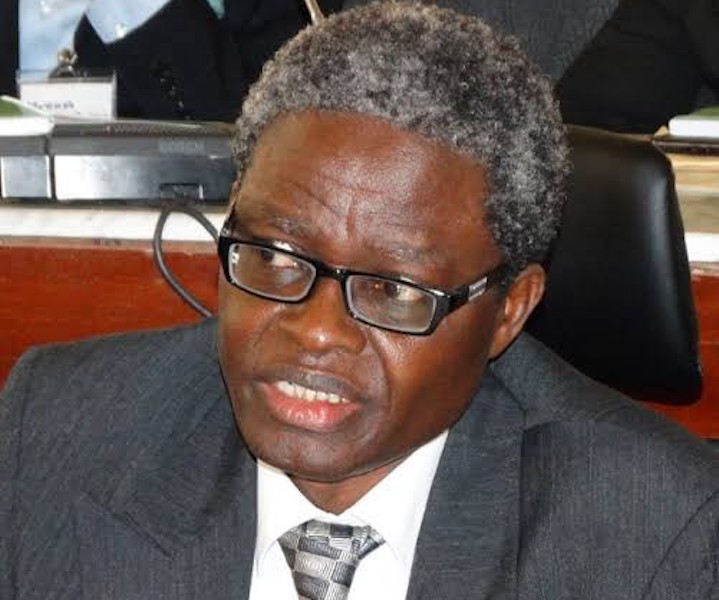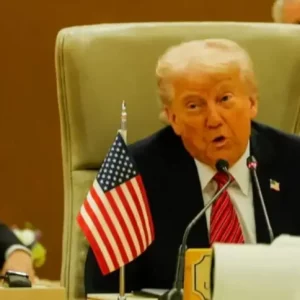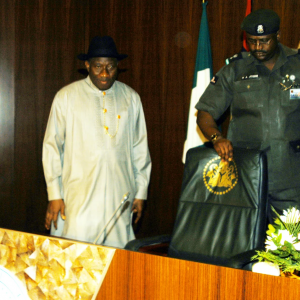Strategic Autonomy is synonymous with self-reliance as a strategy and technique of national development. Self-reliance is about capacity building and position of strength, self-perception and self-respect, self-security and signal of deterrence. In this regard, who is responsible for the administration of strategic autonomy in a country? Is it only the government and its agents? Where and how should the quest for strategic autonomy begin? Should it begin at the home or family level, since every family seeks self-reliance in terms of survival?
Under President Bola Ahmed Tinubu (PBAT), strategic autonomy has been adopted as a foreign policy objective, which requires the use of domestic and international environments to build capacity to do and undo in international relations. Strategic autonomy is also about ensuring state and human security, economic productivity and vibrancy, especially in terms of food sufficiency, and self-reliant healthcare system. Should this be exclusively reserved for the government?
With the life and style of some notable Nigerians, it appears that individual attitude and behaviour can go a long way in positively shaping the quest for strategic autonomy. This requires investigating strategic autonomy as an attitude and as a behaviour. The case of Prince Julius Adelusi-Adeluyi @ 85+ serves as a good illustration for analysis and Louis Odion has lent much credence to our observation by recalling that the life-style of Prince Adelusi-Adeluyi @ 80 was inspiring and publicly appreciated.

As he put it, in the ‘media industry alone, the list is endless. Since the torrent of tributes begin a week ago in commemoration of his 80th birthday, media heavyweights like Sam Omatseye, Dr Reuben Abati, Segun Adeniyi, Azubuike Ishiekwene, Simon Kolawole have individually given touching testimonies. Indeed, these tributes have celebrated his trophies and laurels in multiple fields of human endeavour. But it will require tomes and tomes to document his positive impact on the lives of so many.’
Individual-defined Strategic Autonomy
The issue to address by adding tomes and tomes to the documentation of his positive impact is determining how Nigeria’s quest for strategic autonomy can benefit from the individual life-style of Prince Adelusi-Adeluyi? Put differently, how can strategic autonomy be defined by the factor of individuality? Does national strategic autonomy not begin from the private individual? What are the roles of individuals and professionals in the quest for strategic autonomy?
Private individuals like Prince Adelusi-Adeluyi and other notables like him can play vital roles in Nigeria’s quest for the status of strategic autonomy. They can promote their community’s involvement, advocate for transparency, contribute to societal solutions to local problems, as well as hold government institutions accountable to the people. This role-playing has the potential to enhance effective governance and citizen empowerment. More importantly, community involvement enables contribution to the taking of strategic initiatives and promotion of a collective approach to problem-solving.
Additionally, when a community tries to hold public institutions accountable by demanding transparency in political governance, promoting ethical practices, and also asking that all policy decisions be taken in the interest of their community, public service delivery cannot but be improved, building resilience and long-term sustainability cannot but be also ensured. And true enough, a healthy platform for the operationalisation of the doctrine of 4-Ds would have also been created. Democratic values will thrive. The Diaspora will not operate like strangers. Development efforts will engender joint responsibility. Demography will have the potential to promote mutual understanding of national statistics on societal questions and the changing structure of human populations. And more interestingly, when statistics point to problems and economic inadequacies, collaboration cannot but be a necessity. Thus, the roles of private individuals who have influence in their communities cannot be ignored in the quest, conduct and management of Nigeria’s strategic autonomy.
Indeed, a former Federal Minister of Health and distinguished Fellow of the Institute of Directors, Fellow of the Institute of Management, and Fellow of the West African Postgraduate College of Pharmacy, as well as the Pioneer President of the Nigeria Academy of Pharmacy, Prince Adelusi-Adeluyi still carried his distinguished pharmaceutical personality to other strata of socio-political platforms. At the level of the stratum of legal society, he first graduated as a Pharmacist in 1965 from the University of Ife and then moved to the University of Lagos to read Law and graduating in 1986 as the overall best student in the Law School Class of 1987. He not only attended Course 12 of the National Institute for Policy and Strategic Studies (NIPSS), but also served on the Governing Council and President of the Alumni Association of the NIPSS.
In this regard, the quest for strategic autonomy cannot but require men of timber and calibre, on the one hand, and on a more serious note, men of iron and steel, on the other. Men in both categories must first target the use of Chief Ojo Maduekwe’s Principle of Citizen Diplomacy as one of the instruments of promoting the Doctrine of 4-Ds. They must promote democracy, unite the Diaspora and foster national development. Doing this still requires identifying the counterparts of Prince Adelusi-Adeluyi in countries of special interest to Nigeria.
For instance, who are the friends of Professors like Wole Soyinka, Akinwande Bolaji Akinyemi, Jide Osuntokun, Tunde Adeniran, Yinka Omorogbe, Remi Ajibewa, Ambassadors like Kayode Shinkaiye, Segun Apata, Joe Keshi, Segun Akinsanya, Florentina Adenike Ukonga, Femi George, Godknows Igali, Abdullahi Omaki, Rasheed Akinkuolie, Enaruna Imohe and veteran media moguls like Nduka Obaigbena, and John Momoh, as well as seasoned public affairs analysts like Dr Reuben Abati, Mohammed Haruna, Segun Adeniyi, Ijeoma Nwogwugwu, Eniola Bello, etc. in other countries? Whenever there are controversial issues between Nigeria and any other country, the Government should be able to find Nigerians who have friends in such a country to speak to their friends based on people-to-people relations.
Citizen diplomacy is quite useful in strengthening bilateral relationships. Consequently, notable Nigerians should be organised into a group of Citizen Diplomats from which nominations can be made in the foreseeable future to engage in people-to-people diplomacy while official diplomacy can be reserved for state-to-state interactions. Citizen diplomacy cannot but be a good complement to official diplomacy in the quest for a self-reliant Nigeria in the making. We strongly believe that Prince Adelusi-Adeluyi is still quite young in mind to help lay the foundation for the take-off of citizen diplomacy. Put differently, who can rightly say that the Ekiti Prince is not a colossus or does not have the capacity to engineer a citizen diplomacy movement that will be instrumental to the achievement of the objectives of Nigeria’s foreign policy of strategic autonomy?
Who says that he is not a nationalist and an internationalist per excellence? He was a former Chairman Ekiti State COVID-19 Rapid Response Mobilisation Committee. He is Patron of Ekiti Parapo and Pioneer. He is the President of the Igbimo Ure Ekiti (IUE). If Prince Adelusi-Adeluyi can play active roles in fostering greater understanding and unity among international students and also foster better entente among the people of Ekiti State, it cannot but be required of him to also help Nigeria to be meaningfully self-reliant in international relations. Self-reliance should begin at the individual level before the focal point can shift to the family, nuclear or extended.
Additionally, to be able to sustain the quest for self-reliance, the Government must stop bastardising the award of National Honours by only giving them out stricto sensu on the basis of merit and proven patriotism. Prince Adelusi-Adeluyi received the National Awards of MFR and OFR, and was also given a street named after him in Abuja to mark his 80th birthday in 2020. This was befitting but not befitting enough for someone who has served in various capacities of nation-building. A Chairman of the Board of Trustees of the Nigeria-American Chamber of Commerce, for a Nigerian by ius sanguinis, who has served on the Governing Councils of Ondo State University (now EKSU), University of Ibadan, Elizade University, and Veritas University, Abuja, as well as on the Council of the Nigerian Institute of International Affairs, he truly deserves a higher level of national recognition. One good way may not be another award but giving him the responsibility of what he knows how to do best, like organising citizen diplomats, and translating Chief Ojo Maduekwe’s foreign policy principle of citizen diplomacy into action.
And true enough, he is a pharmacist, a lawyer, a Private Pilot Licence recipient in 1973, a recipient of the degree of Doctor of Law, LLD (Honoris Causa) by the Ekiti State University in April 2024. What else for Prince Adelusi-Adeluyi @ 85 plus after having promoted youth development nationwide and worldwide? He is an old man @ 85 but still youthful in mind at 85. He is wrapped up in the glory of Jesus-like humility and good leadership by example. In fact, again, he became plurilingual as a result of his commitment to the promotion of University Student Organisations which prompted his travelling to several countries of the world.
The Case of Prince Julius Adelusi-Adeluyi
“Prince Julius Adewale Adelusi-Adeluyi, A Quintessential Gentleman’s Gentleman at 80,” was the title of an article written by Kemi Pinheiro and Wahab Shittu and published in the ThisDay in 1987. In their words, ‘Prince Julius Adewale Adelusi-Adeluyi, OFR, mni, is easily classified as one of the doyens of his generation, celebrated only in part, and the Nigerian Law School Class 1987 takes pride in being associated with this man of many excellent descriptions and accomplishments. How do we explain the pride of the Nigerian Law School Class 1987 in associating with Prince Adelusi-Adeluyi? Could the reasons have been different from his attitudinal and behavioural dispositions?
Attitudinally, Louis Odion has spoken little but with much wider implications in his Arts & Life column on “JAA @ 85: A Measure of Public Spirit,” in The Nation newspaper of Wednesday, July 30, 2025, p.15. He first noted that, on August 2, 2020 when Prince Adelusi-Adeluyi turned 80 years of age, ‘no cymbals sounded nor any lack or that his legion of mentees now immensely accomplished in all fields of human endeavour were incapable. It was his fervent wish). As Pa JAA turns this week (August 2, 2025) there will be no Owambe anywhere still. It is by choice. Obviously, the effluxion of time has not in any way diluted his existing prescription for a better country.’
The perception of Prince Adelusi-Adeluyi from the pharmaceutical world is also quite revealing. The man of Juli Plc is ‘a man of contentment, character and service’ (The Punch, August 3, 2025, p.24). In the eyes of the College of Past Presidents (CPP) of Pharmaceutical Society of Nigeria (PSN), Prince Adelusi-Adeluyi is a ‘dynamic chairman’ (ibid, p.19). He is a ‘colossus and the very epitome of pharmaceutical excellence nationally and globally’ (ibid., p. 15). There is no disputing the fact of his being a colossus.
First, he is the Founder and first Chairman of Juli Plc, which is the first indigenous company to be quoted on the Nigerian Stock Exchange. The process of quotation in a stock market is noteworthy because the quotation implies that the Juli Plc met the requirements for quotation, that is, evidence of good corporate governance, evidence of regulatory compliance, financial benchmarks, etc.
Second, he is the first District Governor of Rotary International District 9110, Nigeria. Again, the structure and roles of the Rotary Club are quite interesting. Rotarians always go the extra mile to raise funds for community development in their areas, especially in terms of infrastructure, educational scholarships, promotion of socio-cultural identities and awareness, for which awards and recognitions are also made. For instance, at a Rotarian special award for King Abiodun Adeniyi Adegeye, alias Sunny Ade, Prince Adelusi-Adeluyi led the singing of Esu biri biri e wo mio, biwaju l’oloko nwa mi lo, b’eyin loloko nwa mi lo, mio mo o.’ He used the song as prayer. Governor Mimiko was there (vide GoldMyneTV).
Third, he is the first African to serve as the Secretary General of the World Students Organisation, based in Leiden, Holland. There are many student organisations in Holland one of which is the National Student Organisations (ISO) with a membership of more than 800,000 students. The ISO promotes equal opportunities in education, equality of higher education, and the financial well-being of students. There is also the Erasmus Student Network (ESN), which is a major European student organisation with a membership of more than 900 higher education institutions in 40 countries. These are some of the students’ organisation to which Prince Adelusi-Adeluyi has been exposed in the past. He is educationally very cosmopolitan.
Fourth, he is a polyglot by speaking nine languages, some of which are national and international in character. The mere fact that he has travelled to the various nooks and crannies of the world by having travelled to at least 143 out of the 193 countries in the world cannot help but be quite inspiring. Travelling is education. As Jimmy Cliff, the reggae maestro, has it, ‘the more you live is the more you learn.’ Put differently, the more you also learn is the more experiential knowledge. As he travels to different countries, he acquires new language and culture. He cracks jokes based on foreign cultures.
Fifth, and more interestingly, Prince Adelusi-Adeluyi carried his distinguished pharmaceutical personality to other strata of socio-political platforms. At the stratum of the legal society, he first graduated as a pharmacist in 1965 from the University of Ife and then moved to the University of Lagos to read law and graduating in 1986 as the overall best student in the Law School Class of 1987. He not only attended Course 12 of the National Institute for Policy and Strategic Studies (NIPSS), but also served on the Governing Council and President of the Alumni Association of the NIPSS.
With the foregoing, who can rightly say that the Ekiti Prince is not a colossus? Who says that he is not a nationalist and internationalist per excellence? He was a former Chairman of the Ekiti State COVID-19 Rapid Response Mobilisation Committee. He is also the Patron of Ekiti Parapo and Pioneer. He is the President of the Igbimo Ure Ekiti (IUE).
Without any whiff of doubt, if the Government can stop bastardising the award of National Honours by giving them stricto sensu only on merit and patriotism, there will be much respect and appreciation. When people who do not merit national awards simply lobby and get honoured, they only make such awards not worth more than a bout de papier. Good enough, Prince Adelusi-Adeluyi received the National Award of MFR and OFR, as well as given a street named after him in Abuja to mark his 80th birthday in 2020.
This was befitting but not quite befitting enough for an individual like Adelusi-Adeluyi who has served in various capacities of nation-building. A chairman of the Board of Trustees of the Nigeria-American Chamber of Commerce, for a Nigerian by ius sanguinis who has served on the Governing Councils of Ondo State University (now EKSU), University of Ibadan, Elizade University, and Veritas University. Abuja, and more significantly, also a Member of the Council of the Nigerian Institute of International Affairs, he truly deserves a higher-level of national recognition, in light of his multidimensional entrepreneurial personality: a pharmacist, a lawyer, a Private Pilot License holder in 1973, a recipient of the degree of Doctor of Law, LLD (Honoris Causa) by the Ekiti State University in April 2024;
What else has God not done for the Prince? God enabled him to promote youth development nationwide and worldwide. He is an old man at 85, but still youthful in mind at 85. He is wrapped up in the glory of Jesus-like humility and good leadership by example. He became plurilingual as a result of his commitment to the promotion of university student organisations. What the Lord has done for him we cannot tell it all. Our prayer to God is God’s assurances of more decades of happier life and anniversaries in good health that is devoid of cerebral thrombosis in Jesus mighty name. Joyeux Anniversaire.
The quest for strategic Autonomy is better, if not best, achieved from an individual perspective. In other words, how do individual Nigerians see and understand strategic autonomy? To what extent do they feel very concerned about it? Do they see themselves as major instruments of national growth and development? And more inquisitively, how much attention do the Nigerian elite feel about the need for national self-reliance, an objective that has been a major preoccupation of Ambassador Yusuf Maitama Tuggar, Nigeria’s Minister of Foreign Affairs? Prince Adelusi-Adeluyi has, grosso modo, always given the priority of attention to building national unity at various levels. There is no reason why Prince Julius Adelusi-Adeluyi @ 85+ should still not be concerned with helping to build a Nigerian nation. Old age is a matter of self-perception. Many young people behave mentally like an old experienced people. Yet, many octogenarians have fresh and evergreen thinking mind set of the young people. Our own birthday wish is that Prince Julius Adelusi-Adeluyi should continue to engage the Nigerian youth, create greater awareness about the need for strategic autonomy, as well as mould their character in order to free the Nigerian state from galloping political chicanery, unending institutional corruption, and recidivist politics of self-deceit. Many happier returns of August 2.
Stay ahead with the latest updates!
Join The Podium Media on WhatsApp for real-time news alerts, breaking stories, and exclusive content delivered straight to your phone. Don’t miss a headline — subscribe now!
Chat with Us on WhatsApp








